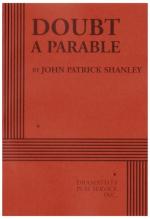|
This section contains 2,260 words (approx. 8 pages at 300 words per page) |

|
To be in doubt about a proposition is to withhold assent both from it and from its contradictory. Although people sometimes withhold assent with no reason for doing so and persist in this even after conceding that they have no reason, doubt is rational only when one has a reason for it and reasonable only when the reason is a good one. Doubt may be accompanied by various feelings, but it seems unlikely that there are specific feelings uniquely associated with it; in general, the feelings associated with doubt are anxiety or hesitation, which are identified as feelings of doubt when they arise in contexts involving questions of belief. In any case, philosophers are not ordinarily concerned with psychological characterizations of a doubter's state of mind. Their attention is primarily devoted to understanding the conditions under which doubt is reasonable and to defining the limits of reasonable doubt...
|
This section contains 2,260 words (approx. 8 pages at 300 words per page) |

|


